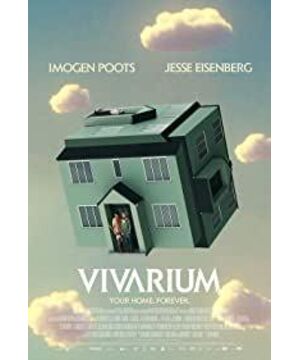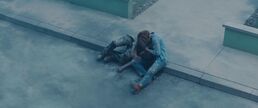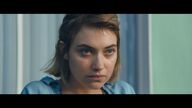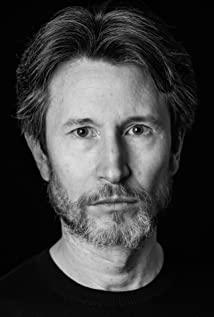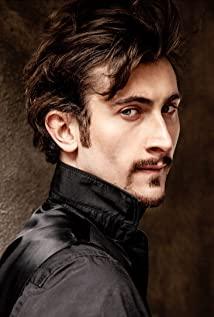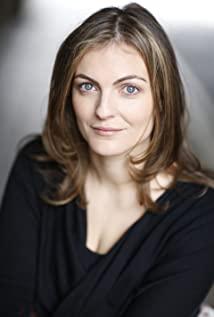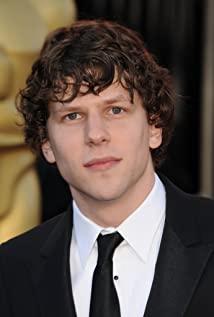I saw that many people felt that the film was made without depth. I have to admit that I did not come to defend this movie. I still want to write down some thoughts. The reason is very simple. I was scared.
Now look back at this movie and see what it says. First of all, the most obvious conclusion: there is some kind of " strange " factor in the world of this movie . I call it singular, which is outside the daily experience of most of us. For example, houses that are too neatly painted with rows of identically painted houses; always full of bright sun and light clouds; well-packaged, regularly delivered, and even simple instructions for daily necessities... Of course, if the above are only considered slightly strange and even bizarre, the world Yonder's also some other things that can be said to determine a non-human , such as the seemingly unlimited extension actually seems to be in place cycle Yonder community, certain acts quickly children grow up with the child The appearance (does imitating the sound line count? Doubtful), and the fantasy space at the end of the film, all the other room 9...
1. Children and Martin
To talk about this kid specifically, and mention that salesperson, Martin by the way. As mentioned earlier, this child is obviously non-human. First of all, of course, it grew too quickly; and the child had two very obvious "deformations" or changes in form, once when the hostess asked "who did you meet today" (deformation of the entire face and neck) , Another time is at the end of the film (crawling posture and sound, raising the ground). However, if you think about it carefully, you can find that in other respects, it can be said that this child did not show anything too exaggerated. It was a bit noisy at home, and screaming all the time may make people very anxious. Staring at the TV, running out of the house, reading strange books... To be honest, there is nothing absolutely abnormal about these behaviors. He may be able to speak other languages (non-human languages?), but he did not do it in front of the male and female masters. He can transform, but the director didn't let him transform every few minutes to scare people. He didn't even show any obvious aggressiveness. His transformation was not used to kill and eat people, but the main female gave him a hammer, and he ran away (and could also be injured). Shut him in the car, and didn't see him escape with any strange function. These explanations, the director did not arrange for him to scare people for scaring people, or to hurt people for hurting people.
If we live the life of this child so far from a human perspective — from infant to childhood to adulthood — it can be said that from a human perspective, this life is also a tragedy. Perhaps he has not subjectively felt sadness/anger, etc., but some of the ways the male and female leaders treat him are definitely not the way they treat people. It was never part of this home. It is called "it". When I was happy, I lay on the grass and watched the clouds. When I needed company, I lay down beside my crib and fell asleep. I hated me and threw me in the car and locked up, discussing me behind my back. I was afraid I would just say why not Kill me earlier. I am definitely not saying that this child [should] be treated as a human being, but I must say that this is a deformed growth process .
But, from the perspective of the child, does he feel deformed? He doesn't bother whether it's deformed or not. He has his own life. He has no dreams, no playmates, but the TV replaces his dreams (some weird images); he can go out at the beginning, has his own activities, and the hostess does not know where he is going. He met people whom the male and female masters could not see. He has something he only knows ("I can't say"). It is very likely that he has some information that the male and female leaders do not understand, or even a completely different language; that is his "enlightenment" or "education." All these, the male protagonist is absolutely not concerned, the female protagonist tried to understand (look through his book), but also can not understand. In a world that parents find completely weird and monotonous, the child doesn't feel bored at all. He has not shown any boredom, any yearning for the "outside world". He is not confused about this place. He can play hide and seek in this world. He knows the language here , he knows how to walk through this labyrinth-like place, and he even has the ability to go out to the so-called outside world. During this whole process, the male and female leaders did not understand, and did not have much will to understand, or it might not be possible to understand.
What the male and female masters can see is that the child has two distinct learning behaviors: observation and imitation. observe. The hero said, this little boy is always watching. This child was almost born in this world. He doesn't resist the weirdness here. He doesn't feel deformed. He grew up here. Imitation, this child can imitate his parents almost perfectly, their tone of voice, and daily conversation. He can also imitate inhuman existence. As I said earlier, he knows the world. It now seems that Martin is certainly not him at the end of the film- only he can travel through these two worlds . Although he may not be able to fit into the human world perfectly (think of the last Martin, it is still very uncomfortable to get along with him), but this is enough. He fully understands the rules of his Yonder world, and he has the ability to step on the borders of the human world. that's it. And Martin's strangeness is not strange at all. I grew up like that since I was a child. Where is the ability to get along with people normally and make people feel at ease?
2. The hero and all others
Let's look at the performance of the male and female protagonists in reverse. I saw someone saying that this movie is a promotional film against marriage and childbirth. Indeed, the content of the movie can easily be associated with some social phenomena, buying a house, starting a family, parenting, working, husband and wife discord, children grow up and leave home, parents reconnect to find the meaning of life... Of course, movies have The dramatic tension of the movie. The hostess came to this house by accident, had children by accident, and lived a "home life" by accident. Judging from the movie, they might not even be married. In other words, Yonder greatly accelerated their social journey as a couple . I believe that some young couples share this sympathy: almost all of them are still in front of them when they are adolescents, and the next child will already come to life and call you mom and dad. At this level, coupled with Yonder's various abnormalities, all kinds of contradictions and pain are almost inevitable.
We see that in Yonder's way of living, the male and female leader (or every couple in the past)-must be completely different from the little boy (and even every Martin in the past). Ordinary humans are forced to stay here. They are facing an abnormal world, experiencing inner fear, resistance, hostility, disgust, and even emptiness. Martins are different. They grew up here. They have no problem with this place. On the contrary, getting along with ordinary humans is their experience (we have seen, humans may even want to abuse them); such an experience prepares them for the world; they may not even have a name until the life of their "parents" The end—probably the completion of their growth—then came to the ordinary world, got a name in the eyes of ordinary people, and had their own place here.
These ordinary humans, in this inescapable ecological box, are trying to spend their time in a way that is as less painful as possible. Are they really in the love of the father and mother when they bring their children? We have also seen that it may be because of boredom to pass the time. It may be that he has to look after the child so that he does not scream. It may be fear, fear of this "non-human" child. The fluctuating attitude of the heroine is the most obvious. She is a teacher herself, and she is more skillful in getting along with the child than the male lead (when the child said that she could not discuss the people she saw that day, the female lead played a little game to try to elicit the answer). She may also be more "moral" and opposed to locking the child in the car, but she is also weaker, and she has no strength or will to kill the child. Of the three, she needs the comfort of others the most . Needless to say the little boy, the male protagonist has his own pits (literally; it was his hobby, now it is his sustenance), and the female protagonist looks for companionship and comfort in the child when there is no partner to accompany him. After discovering the boy's "inhuman", he hoped that the male protagonist could give him a sense of security. I am definitely not condescending to type this passage. I can imagine that the only comfort is indulging in digging pits, debilitating and dying, and the "child" only brings fear of a body bag. But this does not change the fact that she needs the comfort of others. This is her side as a human being.
What about the rest? In addition to parenting, keeping a house, exploring inquiries or killing time in your own way (male lead), we see in the last wonderful space some people are addicted to releasing desires (sex), and some people may trust in religion (the woman at the table makes prayers) Gesture); someone could not bear all this and chose to commit suicide (the man in the bathtub). Who can say that he can live a good life in a wonderful world? Even if you provide you with all the food and accommodation, the child no longer screams, nothing is explicitly attacking you, maybe the thoughts in your mind are enough to make people crazy.
I saw many people discussing what the nature of this Yonder world is, who is manipulating it, and what the purpose is. I think that the hero and all the other people facing the Yonder world probably have thought about the same problem. What is this place? What is the purpose? How much do I know about this place? How much can I know? Except for "how to escape", questions like this are undoubtedly philosophical questions, and they are also questions that we might ask about the world in which we live in the real world. Of course, people's efforts to understand Yonder's world may not reveal the truth of Yonder, but it clearly shows people's own characteristics. A movie line I saw before probably means this: What you've been saying about me doesn't tell you about me; it tells me about you .
View more about Vivarium reviews


